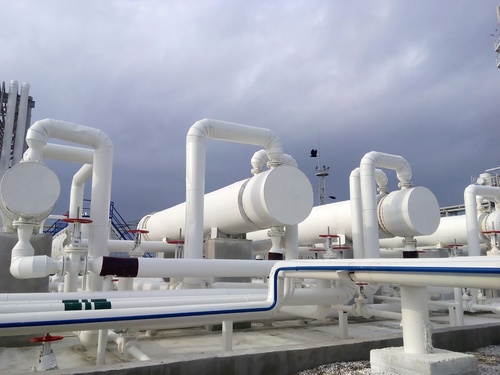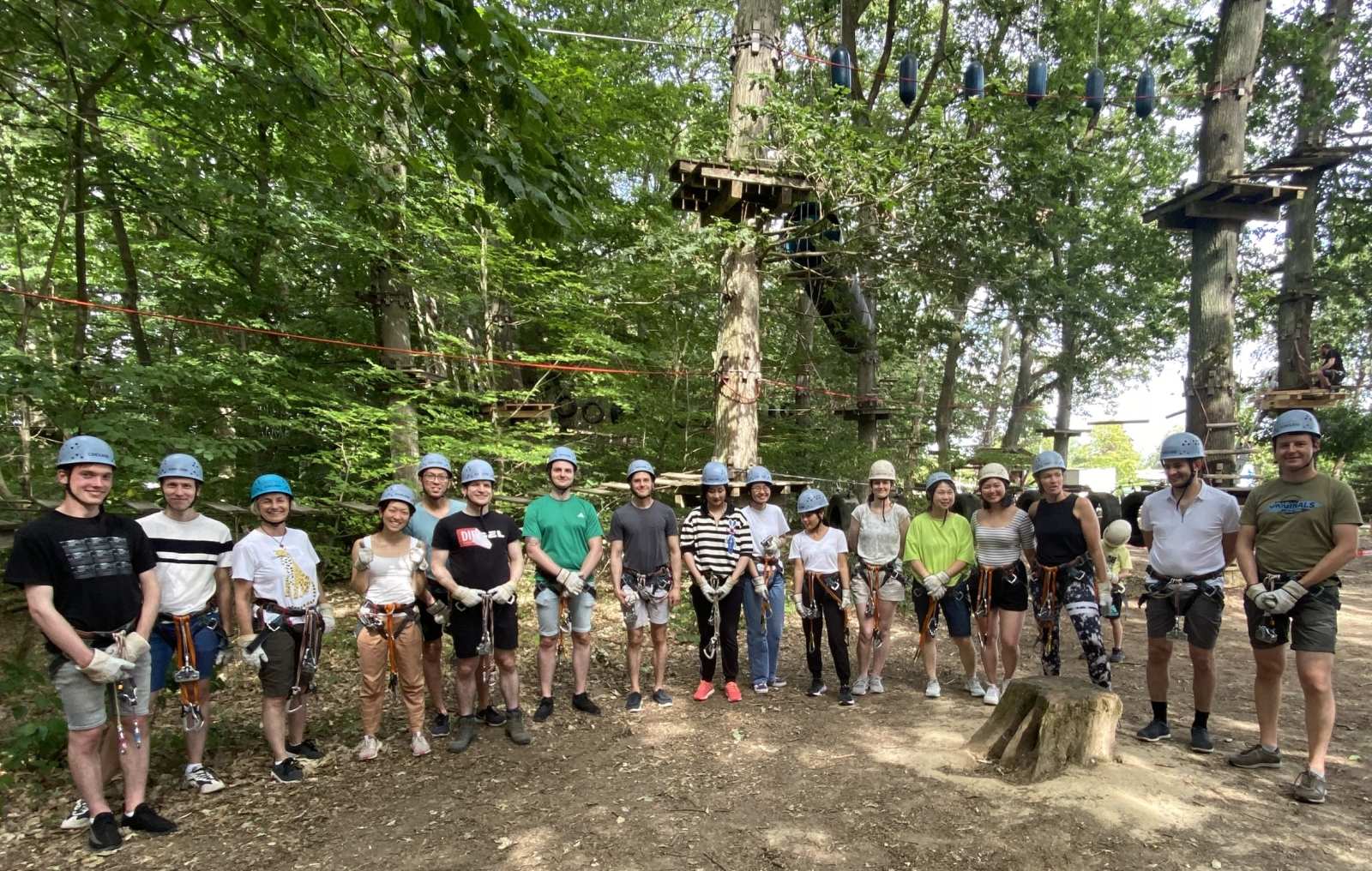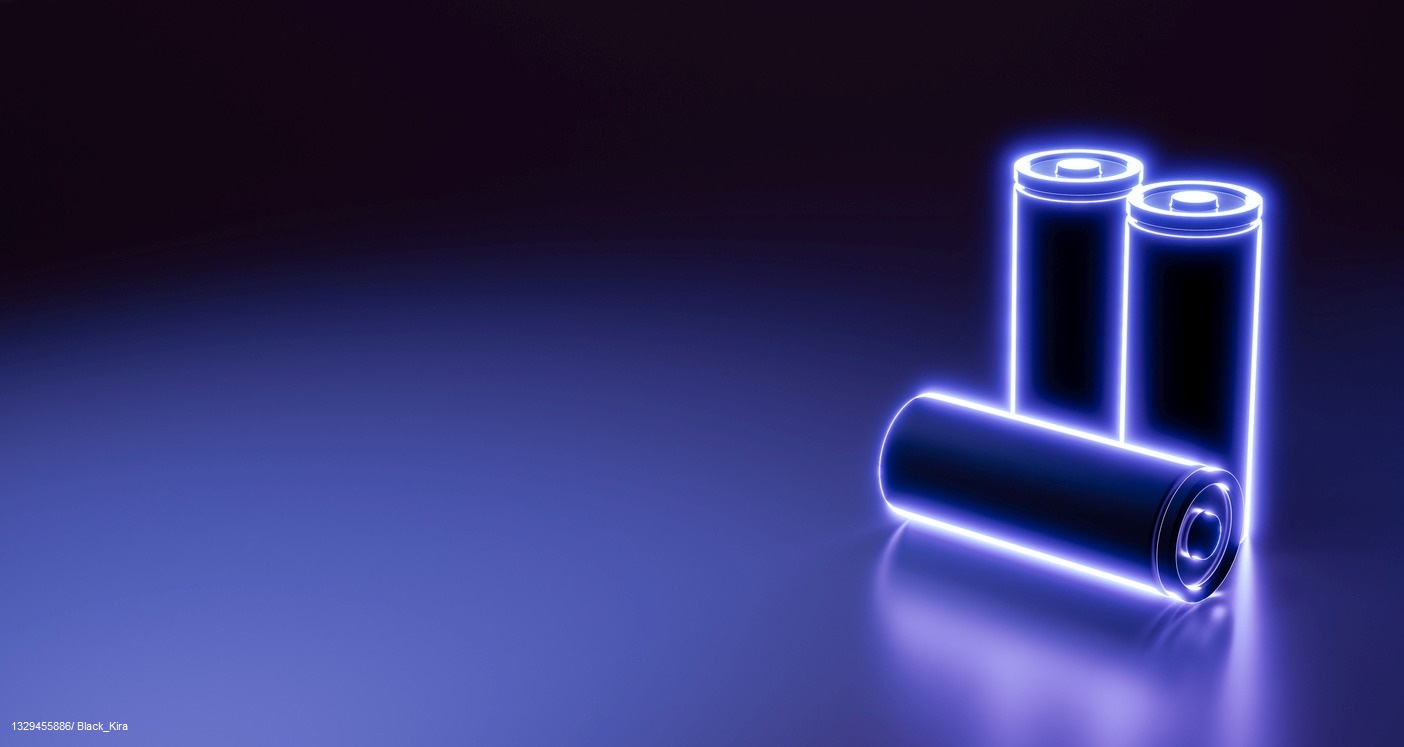South Korea and Taiwan work more closely together on gas and safety
For closer cooperation regarding gas and safety, the Korea Gas Safety Corporation (KGS) and BSMI Taiwan held a joint meeting earlier this year. At the KGS headquarters in South Korea, topics such as cooperation in the safety management of gas plants were discussed and increased mutual trade of products in the field of gas safety and technology was decided. The meeting with the Bureau of Standards, Metrology and Inspection, in short BSMI, was also attended by representatives from companies in the gas industry from both countries. At the meeting, KGS presented its safety standard for butane tanks, a safety management system, accident notification and the current accident statistics.

In particular, the regulation on the mandatory fitting of butane containers with automatic closing valves was explained in detail by KGS and the background to this new regulation was explained. In addition, KGS presented an inspection system for gas-operated equipment as well as guidelines for the inspection of hydrogen gas plants to the visitors from Taiwan. KGS can draw on its many years of experience in the field of safety and product testing. In conclusion, Kwak Chae-Sik, KGS executive director for safety management, said: “Korean-Taiwanese trade volume has grown rapidly since 1989. To further strengthen mutually beneficial cooperation, it is necessary to expand our bilateral cooperation through technology exchange and network development.”
The Korea Gas Safety Corporation (KGS) is a government organisation under the Ministry of Trade, Industry and Energy (MOTIE). Gas safety regulations in Korea began in 1974 with the passage of the Compressed Gas Control Act. In 1995, the Institute of High Pressure Gas Safety was established, and after several restructurings, the Korea Gas Safety Corporation (KGS) was established in 2001. One year later, KGS was affiliated to MOTIE. KGS was accredited as a Korean Notified Body in 2006 and was also accredited to conduct KCs certification and testing of explosion-proof electrical equipment.
We offer certification services for all product areas, including KC certification for consumer products and especially electronics, KC EMC certification for electronic products and KCs certification for machinery, as well as KCs for explosion-proof products. We are at your disposal for all questions regarding Korea certifications.
Feel free to contact us any time if you need assistance or have any questions regarding Korean certifications like KC, KC EMC, KCs, KCs for explosion safety products or KGS factory registration.
Tel. Europe: +49-69-271 37 69 261
Tel. US: +1 773 654-2673
Email: info@korea-certification.com
For more information you can download our free brochure “Korea Certification Made Easy – The Booklet“.
MPR Summer Event – Outdoor Challenges with Variety
On July 17, 2023, the MPR team gathered for their annual summer event, which this time took the form of a triathlon with sporting events and cognitive challenges in the beautiful town of Kelkheim, Hessen.

The day kicked off with an archery competition, which raised the team’s performance to a new level in a very short time.
The participants then embarked on the first stage of a hike through the countryside, which led to the high ropes course in the forest. Dizzying heights and a variety of difficulty levels kept the adventurers on their toes providing fun and thrills.
The day was rounded off with a delicious dinner in the idyllic beer garden of the Gimbacher Hof in the Vordertaunus region, where the colleagues were able to reflect on the day in a relaxed atmosphere and indulge their taste buds.
A heartfelt thank you for the organizers and the entire MPR team for making this company outing an unforgettable event.
Posco Group invests 92 Billion US Dollars in Steel, Batteries and Hydrogen
South Korean conglomerate Posco Group plans to invest about 92.4 billion US dollars in steel, secondary batteries and hydrogen by 2030. This is to strengthen competitiveness in future environmentally friendly materials, the company said in a statement in early July. More than 60 per cent of the investment sum will be invested in South Korea, mainly at the sites in Pohang, North Gyeonsang Province and Gwangyang, South Jeolla Province. Posco operates steel mills and rolling mills there, which account for the majority of the company’s proprietary steel production. “The investment will make Posco the market leader in future technologies and continue to grow,” Chairman Choi Jeong-woo told The Korea Times at the 50th anniversary of Posco’s first steel plant in Pohang. “In particular, the investment of over 60 per cent of the total planned amount in South Korea plays an important role in the development of the local economy and creation of skilled jobs,” Choi added. For battery related products, KC certification, KCs certification or other Korean product certification is often required to be approved for the Korean market.

In addition to expanding its steel division, which is the company’s core business, Posco will also focus on secondary battery materials and hydrogen. The latter is seen as an important component of Posco Group’s plan to transform itself as CO₂-neutral by 2050. Posco also expects the investments to generate synergy effects such as the establishment of suppliers and the creation of a total of 330,000 jobs. In recent years, Posco has already invested huge sums in secondary battery materials through Posco Holding and its subsidiary Posco FutureM. Posco also plans to convert its steel mills from the current carbon-based process to HyREX, a hydrogen process, by 2026. To run the blast furnaces at the Pohang and Gwangyang steel mills on hydrogen, an estimated 5 million tonnes of hydrogen are needed annually. Therefore, Posco plans to produce its own 7 million tonnes of hydrogen annually by 2050 to meet this demand.
We offer certification services for all product areas, including KC certification for consumer products and especially electronics, KC EMC certification for electronic products and KCs certification for machinery, as well as KCs for explosion-proof products. We are at your disposal for all questions regarding Korea certifications.
Feel free to contact us any time if you need assistance or have any questions regarding Korean certifications like KC, KC EMC, KCs, KCs for explosion safety products or KGS factory registration.
Tel. Europe: +49-69-271 37 69 261
Tel. US: +1 773 654-2673
Email: info@korea-certification.com
For more information you can download our free brochure “Korea Certification Made Easy – The Booklet“.
LG Energy and SK On present prototype LFP batteries at InterBattery 2023
LG Energy Solution Ltd. and SK On Co. presented prototypes of their lithium iron phosphate batteries, or LFP for short, in mid-March. The premiere took place during South Korea’s largest battery trade fair, InterBattery 2023. As the business portal KED Global writes, the companies are thus preparing to make inroads into the low-price battery market, which is currently dominated by Chinese competitors. LFP batteries are used in low-cost and small e-vehicles as well as energy storage devices. LG develops LFP cells mainly for energy storage, while SK’s are used in EVs. For battery related products, KC certification, KCs certification or other Korean product certification is often required to be approved for the Korean market.

Currently, LFP batteries are mainly produced by Chinese companies such as Contemporary Amperex Technology Co (CATL) and BYD. These are between 20 and 30 per cent cheaper than nickel-cobalt cells, which consist of lithium, nickel, cobalt and manganese. The disadvantage of LFP batteries is their lower energy density and the resulting shorter range in EVs. LG is reportedly close to mass-producing LFP batteries at its plants in Nanjing, China, and Ochang, South Korea. Industry insiders expect a market launch in 2025. A subsidiary of the LG Group is also considering manufacturing LFP cells in the USA. There, tax incentives for EVs built predominantly with components from North America or its trading partners will apply since August 2022.
With a new prismatic cell, SK presented another new battery type. Test runs for production are to begin this year, the company said. SK is also working on two other cell technologies: cobalt-free and solid-state. Solid state batteries are considered the next ultimate generation of batteries due to their safety and higher energy density compared to lithium-ion batteries. Samsung SDI is also increasing its efforts to bring solid-state batteries to market ahead of the competition.
Certifications for the Korean market are a complex hurdle and difficult to navigate due to different authorities and certification systems. With over 15 years of experience in the certification business, MPR International GmbH is your best point of contact for competent service when it comes to exporting to Korea. For example, KC Safety is relevant for electronics and household products, which are mostly intended for consumers, as well as products for children and babies.
Feel free to contact us any time if you need assistance or have any questions regarding Korean certifications like KC, KC EMC, KCs, KCs for explosion safety products or KGS factory registration.
Tel. Europe: +49-69-271 37 69 261
Tel. US: +1 773 654-2673
Email: info@korea-certification.com
For more information you can download our free brochure “Korea Certification Made Easy – The Booklet“.



